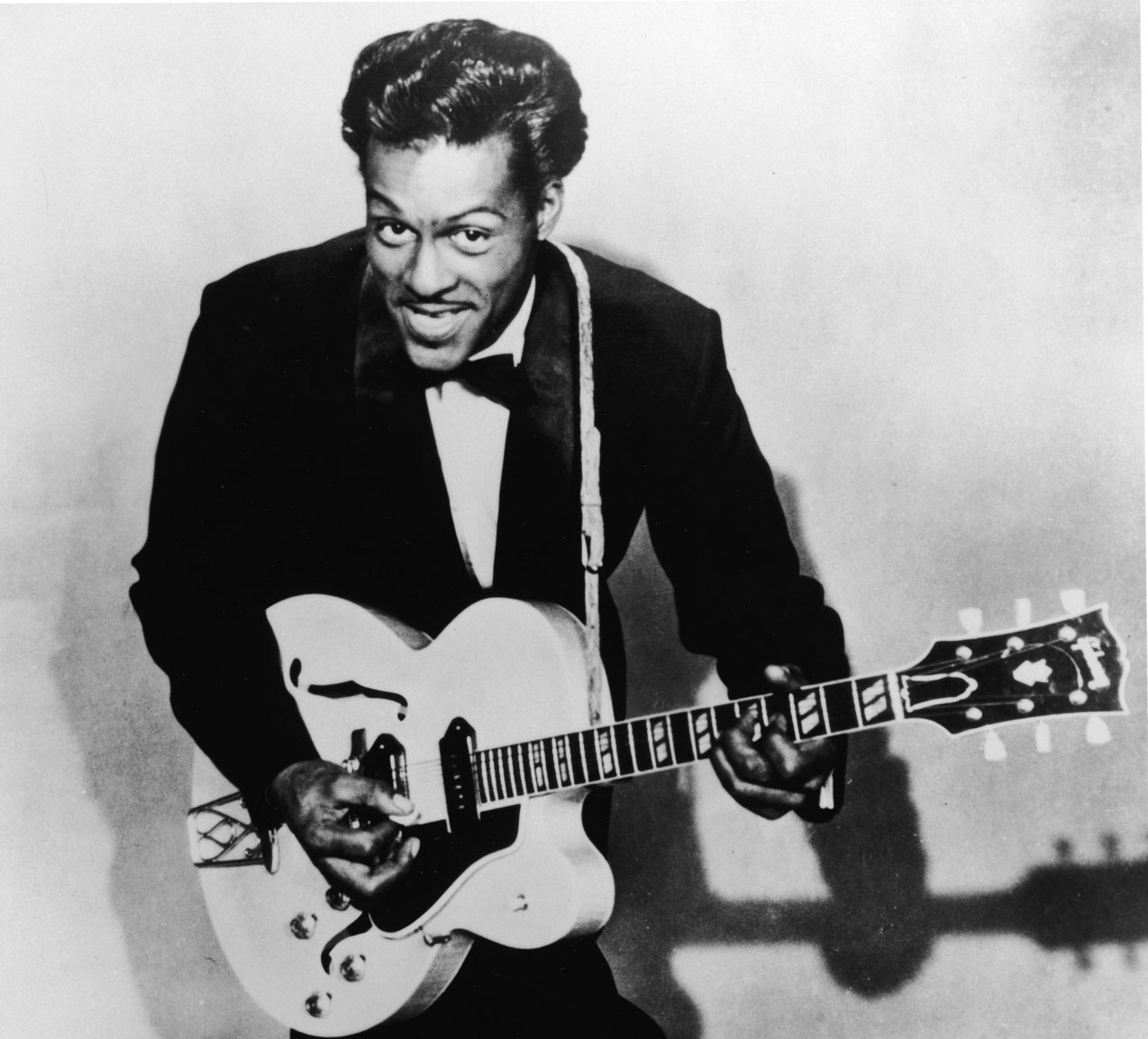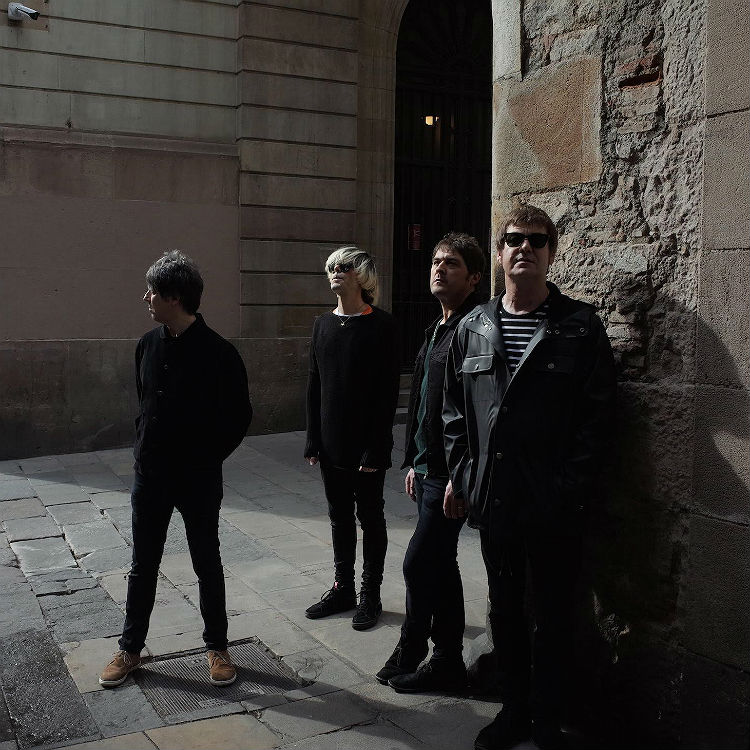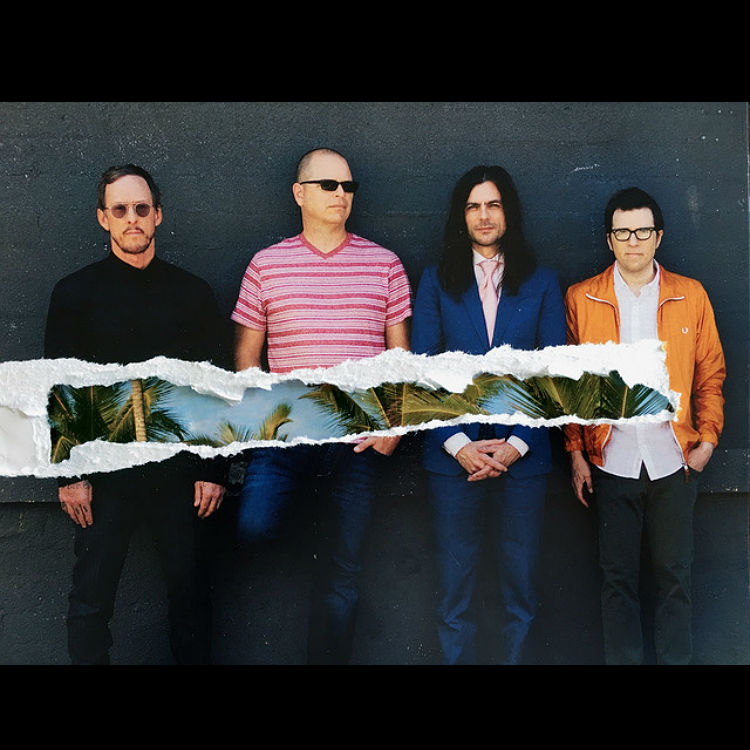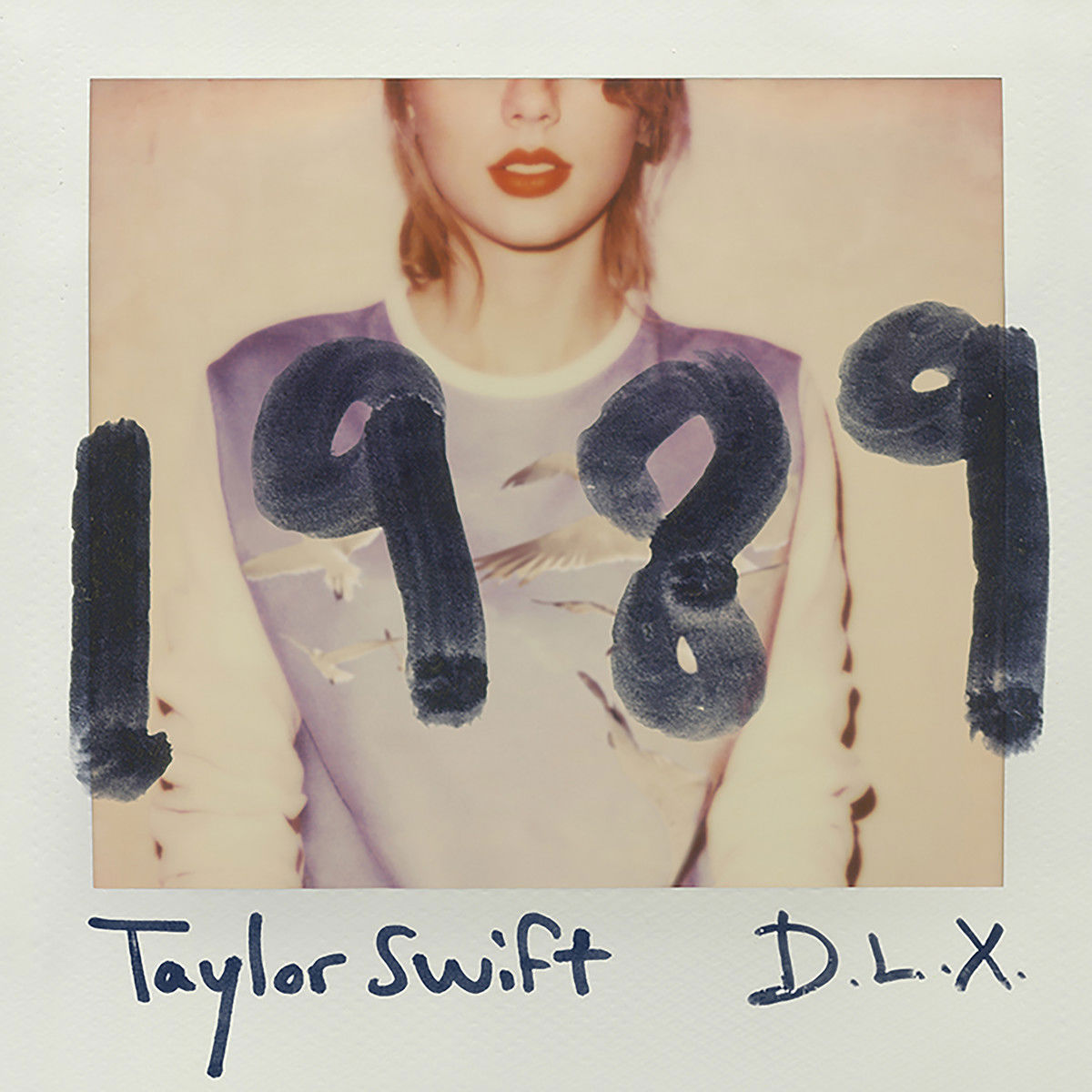 Photo:
Photo:
It’s certainly no exaggeration to say that music as we know it today wouldn’t be the same if not for Chuck Berry, the pioneering rock’n’roll singer-guitarist who passed away yesterday aged 90. Making his mark as part of the first wave of rock’n’roll that initially swept the United States of America before adding colour to the drab austerity of post-war 1950s Britain, Berry’s true genius lay in a combination of guitar playing, whip-smart lyrics celebrating the joys of adolescence, and a flamboyant showmanship.
Musically, he moved rhythm and blues forward with a series of incendiary riffs that are still the standard for all aspiring guitarists whilst upping the tempo and rhythm into something more urgent and primal. In an era when the guitarist was a guy who stood by the drummer and backed the singer, Berry became the first guitar hero of the age as the instrument took over from the piano by taking centre stage and the joys of six string dexterity quickly became apparent.
Berry was also smart to shift the lyrical emphasis from the adult concerns of the blues to more adolescent matters. This was the age of Eisenhower and the economic and material boom of 50s America gave rise to the teenager as never before. These were adolescents with a growing spending power and the economic prosperity of their parents ensured that material benefits such as cars, radios, record players and socialising was all within their grasp. The template was laid out in his first single, 1955’s ‘Maybellene’, the infectious tale of hot rod racing, open roads and broken hearts.
As a performer, Berry gave rise to the generations of guitar heroes that followed. His duck walk – the one-legged hop that saw him move from one side of the stage to other – was unprecedented while his splits and guitar waving suggested something far more phallic and priapic.
He was born Charles Edward Anderson Bury in St Louis, Missouri, to a middle-class family and developed an interest in music at an early age. Having performed at high school, any serious ambitions were curtailed when Berry was convicted of armed robbery at the age of 18 and he spent three years in a reformatory. Upon his release, he worked as a hairdresser while spending his evenings playing with the Johnnie Johnson Trio with Johnson on piano and Ebby Harding on drums. It was around this time that Berry switched to electric guitar and never looked back.
Inspired by a meeting with Muddy Waters in Chicago, Berry was recommended to label boss Leonard Chess, who, seeking something new, recognised that the direction Berry was taking could gain him a whole new audience. He was right and ‘Maybellene’ shot to the top of the Billboard’s Rhythm And Blues Chart and sold over a million copies.
The hits that followed saw Berry at his most prolific: ‘Roll Over Beethoven’, ‘Too Much Monkey Business’, ‘You Can’t Catch Me’, ‘School Day (Ring! Ring! Goes The Bell), ‘Rock And Roll Music’, ‘Sweet Little Sixteen’, ‘Carol’ and, of course, ‘Johnny B. Goode’ all gave voice to the teenager while hardening the fingertips of countless thousands of guitar hero wannabes.
He invested his money in real estate and in 1958 opened a racially integrated nightclub, Berry’s Club Bandstand, in his hometown. The club was closed by Berry after suffering years of police harassment. His career was then brought to a sudden halt after he was jailed for a second time. Charged under the Mann Act, Berry was accused of transporting a minor across the state line for immoral purposes. He was fined $5000 and sentenced to five years in jail. This was reduced to three years after Berry appealed, claiming that the judge’s attitude was racist and had prejudiced the jury against him. He served one-and-a-half years.
But as Berry’s output and popularity declined, a new generation of musicians helped revive his music. The Beatles covered Berry’s music extensively during their Hamburg residency while in Chelsea, The Rolling Stones, then living in mythical squalor, were honing their chops on a diet of Chicago blues and Berry’s rock’n’roll dispatches. The Rolling Stones’ first single was Berry’s ‘Carol’. Spearheading the British Invasion of the US in the early 60s, both bands – and those that followed – alerted America to its own heritage and Berry’s fortunes were revived and he had further hits in the 60s with songs such as ‘Nadine’ and ‘You Never Can Tell’.
But while Berry’s hits dried up, his influence lived on. Among many others, The Beach Boys and Jimi Hendrix all took notes and his shadow fell across works by proto punks The MC5 and New York Dolls. Indeed, despite the ‘Year Zero’ claims made by the punk rockers of the 1970s, Berry’s fingerprints were all over the works of Sex Pistols and The Clash – just check out ‘God Save The Queen’ or ‘Complete Control’ for evidence. And you can see and hear that influence every time AC/DC take to the stage. Little wonder that they sang, “In the beginning, back in 1955/Man didn’t know about the rock’n’roll show/And all that jive…” on ‘Let There Be Rock’.
Berry continued to perform throughout the 70s and 80s with a variety of pick up bands to save on expenses but his belligerence on and off the stage ensured that his performances where frequently erratic. Recalling a 1973 concert when the E Street Band were Berry’s musicians for the night, Bruce Springsteen said: “He just pulled up in his own car and didn't have anybody with him, or a band. We said, 'What songs are we going to do?' He goes, 'We're going to do some Chuck Berry songs.'"
He again invested in real estate and opened a restaurant, the Southern Air, in Wentzville but more trouble was to follow. In 1990, a group of woman sued him after he allegedly filmed them using the restaurant’s toilets. He settled the lawsuit at a cost of $1.2m.
Berry announced on his 90th birthday that he planned to release a new album in 2017 – his first in 38 years. Dedicating it to his wife Thermetta, nicknamed Toddy, Berry said: “My darlin’ I’m growing old. I’ve worked on this record for a long time. Now I can hang up my shoes.”
And now he’s gone but the music – that fantastic, urgent, infectious music – remains. As long as there are human beings on the planet, Chuck Berry’s music will continue to be played. But here’s the thing – and it’s a measure of Chuck Berry’s sheer brilliance – his music will live on long after the human race gives the keys back to Mother Nature: ‘Johnny B. Goode’, alongside other human cultural achievements, is on the Voyager space probe as it hurtles billions and billions of miles through space. It’s a terrific thought that if there really is life out there, the first thing that alien life form will hear is the music of Chuck Berry. Praise doesn’t come any higher than that.




















